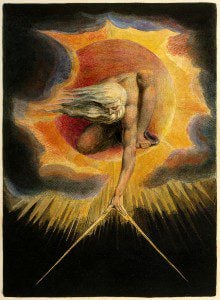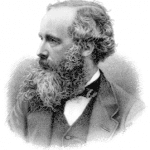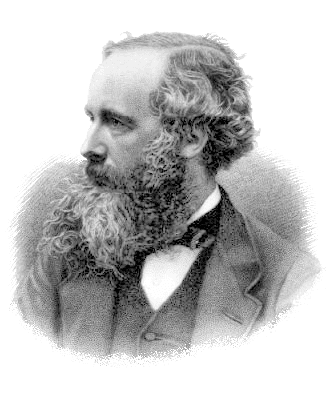Take the Fair Face of Woman, and Gently Suspending, With Butterflies, Flowers, and Jewels Attending, Thus Your Fairy is Made of Most Beautiful Things, by Sophie Gengembre Anderson (1823-1903) [public domain / Wikimedia Commons]
* * *
This took place in the combox for my post, “Fairies, Atheism, God, & Ad Populum Fallacy.” The words of TheMarsCydonia will be in blue.
* * * * *
P1. A position for which serious thinker have given consideration cannot be blithely dismissed.
P2. Holding a position for which serious thinker have given consideration is reasonable.
P3. Serious thinkers have given consideration to theism
C. Therefore, theism cannot be blithely dismissed and is reasonable (from p1-3).
You have spent two blog posts arguing for the above so I have little doubt you agree that the premises and therefore the conclusion are sound (I could be mistaken of course).
So the unanswered question remains, does argument apply to atheism?
P1. A position for which serious thinker have given consideration cannot be blithely dismissed.
P2. Holding a position for which serious thinker have given consideration is reasonable.
P3. Serious thinkers have given consideration to atheism
C. Therefore, atheism cannot be blithely dismissed and is reasonable (from p1-3).
Yep. I think atheism should be given serious consideration (which is why I have written a lot about it and have debated many atheists). It’s rational (in a broad sense), and atheists are generally very sharp and thoughtful people, but it starts from false premises, which is the problem. The castle is only as good as its foundation.
I was making the argument, of course, as to how belief in God is to be distinguished from belief in the tooth fairy and other imaginary figures, which is what is thrown at us.
And so I came up with the notion that many many great thinkers and philosophers have accepted and built up theism and theology, whereas there is no “tooth fairyology” or “leprechaunology.”
I’ve also maintained for many years that the problem of evil is the most serious objection to Christianity, and it is one of the primary atheist objections. So it is a serious objection from a serious position, that should be given serious consideration (and I have done so, with many treatments of it).
But don’t you think that the “Santa Claus argument” is simply a reductio ad absurdum variation of a lack of evidence argument? That saying comparing Santa Claus, feathered fishes, tooth fairy, etc. with God is invalid “because serious thinkers” is red herring that avoids actually answering the soundness of the premises?
Because really, what the “santa claus argument” is a “lack of sound justification argument”. And the aim is not to disprove the existence of god but to demonstrate that it is reasonable for atheists to withhold belief in god:
P1. It is reasonable to withhold acceptance of a position for which you have no sound justification for.
P2. Belief in the existence of Santa Claus has no sound justification
C. Therefore, it is reasonable to withhold acceptance of a position of belief the existence of in Santa Claus.
The “Santa/Tooth Fairy/etc.” is a comparison meant to use something for which theists will also agree with. I doubt theists (in general) will dispute P1 and P2 are sound and therefore the conclusion is sound.
The problem is when you flip the argument to another subject: God.
P1. It is reasonable to withhold acceptance of a position you have no sound justification for.
P2. Belief in the existence of God has no sound justification
C. Therefore, it is reasonable to withhold acceptance of a position of belief in the existence of God
This explains why atheists come to that conclusion. Theists then should have to explain why premise 2 is unsound. Saying “a lot of serious thinkers disagree with premises 2” doesn’t show that premise 2 is unsound, it just burden shifts the responsibility to the “serious thinkers”.
And all of the above concerns theism, not christianity. The problem of evil may be an objection to the existence with the characteristics of the classical christian god (and I agree that is a considerable problem) but not to a god “in general” (a deistic god or a god that is not omniscient, omnipresent, omnipotent and omnibenevolent).
The “Santa Claus argument” is not an argument against a particular and specific god but against the belief (and not the existence) in any god “in general”.
And the only foundation my atheism has is: “I have not been presented a convincing case (which means a sound case) that a god exist”. It has not other premise. If I could convince myself that a god exist without the case being sound we wouldn’t be having this conversation and I would still be a catholic.
Unfortunately there came a time when I realized that what I wished to be true and what I knew to be true were two different things and I could no longer pass the first as the second. In regards to Santa Claus, I made that realization when I was a kid. When it came to God it took me decades more.
Of course we deny that there is no evidence or justification or warrant for our beliefs. I compiled the various different arguments in hundreds of links, so people like you can peruse them if you wish. I have collected seven lengthy collections of links:
Cosmological Argument for God (Resources)
Teleological (Design) Argument for God (Resources)
Ontological Argument for God (Resources)
15 Theistic Arguments (Copious Resources)
Science and Christianity (Copious Resources)
Atheism & Atheology (Copious Resources)
God: Historical Arguments (Copious Resources)
The evidences and arguments are there for anyone who wishes to read them. But you can bring the horse to water; you can’t make it drink.
When the atheist claims there is no evidence whatsoever and no reason to be a Christian, then I produce this.
If they want to dismiss it all as of no import, they may. God gives them free will to do so if they so choose. The consequences will be dire, but they have the freedom.
All this does not nothing to really address the issue raised in my previous comment Mr. Armstrong:
Is the “Santa Claus argument” a valid argument for atheists to explain why they do not believe?
No. I don’t consider it serious argumentation. It is more along the lines of mere mockery and derisive dismissal. Hence, we see the unsavory accompanying attitudes (quite often) among those who utilize it.
Finding it mocking does nothing to invalidate the soundness of an argument. If that is the case, your whole “faith of atomism” post suffers from the same.
[not at all. See that post of mine, which is a true, legitimate reductio ad absurdum and turning the tables argument, with use of sarcasm and parody, and my lengthy defense of it against attacks and widespread miscomprehensions]
* * *
Is saying “serious thinkers have given consideration to” a proper rebuttal to it?
Yes. Like I said, if there were well-established academic fields of “tooth fairyology” or “leprechaunology” then the argument might have some weight. But since there are not . . .
I haven’t seen you respond to my point that is a red herring. Saying “other people disagree with the premise” does nothing the invalidate the premise. It just shifts the burden to someone else.
I’ll say again what I have stated over and over: the presence of a long and noble history of theistic thought among philosophers goes to show (I think) that theism as a worldview is vastly different in kind from “tooth fairyism” and “leprechaunism” (infinitely more substantiated academically and philosophically); not that theism is true (the latter would be the ad populum fallacy). Unless you grasp what I am dealing with and specifically what I am replying to when I make an argument, you won’t grasp the argument, because you have removed it from context. This is part of the reason why I refused to reply to your long counter-reply, because it had several frustrating errors of this sort, and I simply didn’t have the patience. I’m painstakingly careful and minute in argumentation, and many times, thoughts that you assumed were in my head or reasoning in making a particular argument had nothing whatsoever to do with it; never crossed my mind.
* * *
Its true that there remains some “leap of faith” with regard to any and all theistic arguments. They’re not airtight, but that is of small concern, since very few arguments of any sort or type are airtight.
I would say that the cosmological argument is strong and plausible because there seems to be no plausible alternative [i.e., explanation of the origin of the universe]. It’s by far the most plausible of the options available. And that makes it a strong argument.
* * *
The “is there evidence” is another question. Of course theists will say there is evidence. As you yourself said “95% or more of Christians are not convinced because of intellectual arguments” but once that’s pointed out to them, they will try to justify holding to their beliefs by claiming evidence or justification.
People are very good at finding intellectual arguments for conclusions they reached for non-intellectual reasons. The question then becomes, are those intellectual reasons sound?
Yes, but there is nothing necessarily wrong, fallacious, or improper about that. We all do that all the time, regarding things we don’t fully understand.
I agree, which is why there was this part too that you did not quote: “The question then becomes, are those intellectual reasons sound?”
I believe that when I turn on a light switch, that a light bulb will come on. In a remote sense, it’s a sort of faith. I may not know the ins and outs of electricity. If I learned those, I could later explain what I previously perceived on a more elementary level.
Piece of advice Mr. Armstrong, no atheists (generalization) takes that kind of equivalence seriously. I recommend avoid equating faith in a god with faith that the light will turn on when flipping a light switch.
Of course I didn’t do that (once again you are out to sea with one of my many analogies).
No analogy is perfect, of course, but this one was to believing in things we don’t fully understand, and later perhaps giving more intellectual reasons for it (replying directly to your statement); not an utter equation of “faith in God” with “faith in electricity”: which is ridiculous and not an “argument” I would ever advance.
* * *
Examples are legion. We trust our senses for giving us accurate information about the external world. Indeed, all of science is built upon this initial premise.
We all do that naturally. A baby can do it. Does that mean it’s not valid or trustworthy or “serious” until and unless we can fully explain it? Clearly not.
It’s only recently, in fact, that we have advanced in neuroscience to the extent that we can actually explain the particular processes that go into sight and storage of such information obtained by sight into our brains.
But we all had trusted our eyesight (and other senses) all those years before we had technical explanations of it. We had created modern science before we could “prove” all the ins and outs of sensory perception.
I have yet to meet any which is why I am still an atheist. Either you are convinced by the arguments or you are not. I find the arguments unconvincing because I find them unsound.
Take the cosmological argument. Even if all its premises were sound (they are not), it still is a leap to go from “there is an uncaused cause” to “that cause is God” as Thomas of Aquinas did.
I will actually be doing a presentation next week on theological arguments (cosmological, teleological, ontological and moral) and why they are not convincing.
* * *
I don’t think the errors are coming from where you think they are. It may be me but it seems that your “it’s more substantiated academically and philosophically” actually has little to do with the “Santa Claus argument”.
P1. It is reasonable to withhold acceptance of a position for which you have no sound justification for.
P2. Belief in the existence of Santa Claus has no sound justification
C1. Therefore, it is reasonable to withhold acceptance of a position of belief the existence of in Santa Claus.
This you agree with.
pA. It is reasonable to withhold acceptance of a position you have no sound justification for.
pB. Belief in the existence of God has no sound justification
cA. Therefore, it is reasonable to withhold acceptance of a position of belief in the existence of God
This you do not.
I unfortunately do not see how you support the second opinion. I’ll concede that to you, I really do not understand.
Of course I completely deny pB. The justification I would give is summarized in all of the theistic arguments I have compiled [see the list of seven links-posts above] (which cannot be compiled to defend Santa Claus, which was my initial point). I think those provide plenty of justification and warrant for theism and Christianity.
Also, when I say “reasonable” I’m not using it as a synonym for “true.” Remember, above, I stated that I thought atheism was reasonable, but I certainly don’t think it is true or even plausible.
In other words, I’m saying that it is a reasonable viewpoint (very broadly speaking) that can be argued with / by means of serious rational arguments, as opposed to pure irrationality. I deny several of its premises, and therefore, its conclusions.
This is what I strive to get atheists to see regarding Christianity. We utilize reason; we love reason; we love science; we love evidence. We don’t espouse blind faith, but rather, a rationally informed faith, not inconsistent at all with either reason or science. We’re not against any of those good things. We simply come to different conclusions than atheists do.
Yet it seems that the majority of atheists regard us as purely irrational, gullible, infantile. Many Christians think that of atheists, or that they are also invariably evil and wicked.
Both attitudes are dead wrong.



























